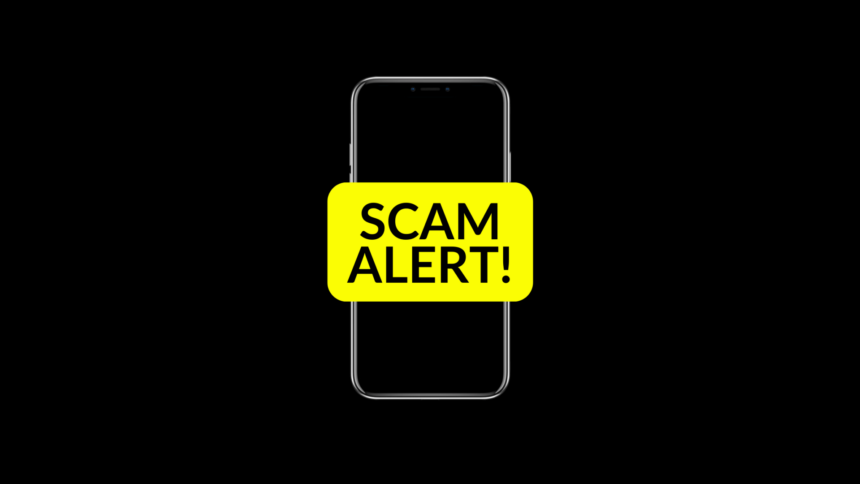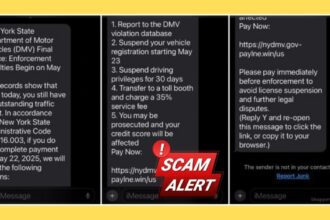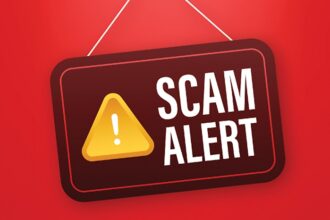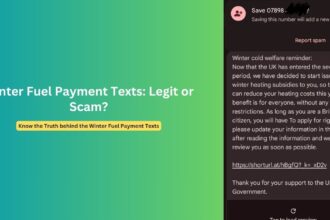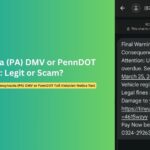Texas residents are increasingly receiving suspicious text messages claiming to be from the ‘TxDMV’ or ‘Texas DMV’ demanding payment for unpaid toll fees. If you’ve received one of these messages, you might be wondering: is this legitimate or a scam? The answer is clear – these messages are fraudulent attempts to steal your personal and financial information. The Texas Department of Motor Vehicles has issued an official warning confirming that they do not operate toll roads or collect toll payments, making any such message automatically suspicious.
Texas DMV Issues Official Scam Warning
The Texas Department of Motor Vehicles has taken a proactive approach to combat these fraudulent messages by issuing official warnings across their social media platforms. In their Facebook post, the Texas DMV clearly states: “Text messages claiming to be from ‘TxDMV‘ or ‘Texas DMV’ attempting to collect unpaid toll fees are not legitimate. The Texas Department of Motor Vehicles does not operate toll roads or administer toll collections.”
The agency has emphasized that replying to these messages or clicking on the provided links could subject recipients to identity theft or financial loss. They’ve directed concerned residents to report these fraudulent texts to the FBI’s Internet Crime Complaint Center at www.ic3.gov.
Comments on the Texas DMV’s social media posts reveal the widespread nature of this scam. One resident reported receiving two fraudulent messages in a single week, while another mentioned that friends in Louisiana have also been targeted, indicating the scam has spread beyond Texas borders. Unfortunately, some comments also reveal that people have fallen victim to these sophisticated fraud attempts.
This official warning aligns with similar alerts issued by transportation authorities in Kansas, Michigan, Kentucky, North Carolina, South Carolina, and other states, indicating this is part of a coordinated nationwide phishing campaign targeting drivers across America.
Understanding the Texas DMV Toll Scam: An Overview
The Texas DMV toll scam is a sophisticated phishing operation designed to steal personal and financial information from unsuspecting victims. Scammers send text messages impersonating the Texas Department of Motor Vehicles, claiming recipients have unpaid toll fees that must be paid immediately to avoid serious consequences.
These fraudulent messages exploit public familiarity with legitimate toll systems in Texas, such as TxTag, EZ TAG, and various toll roads operated by entities like the North Texas Tollway Authority (NTTA) and Harris County Toll Road Authority. However, these legitimate toll operators are separate from the Texas DMV and have their own established procedures for toll collection that don’t involve unsolicited text messages with urgent payment demands.
What makes this scam particularly deceptive is that Texas does have extensive toll road networks, making it plausible to many residents that they might have missed a toll payment. The scammers capitalize on this uncertainty and create fake urgency to pressure victims into acting quickly without taking time to verify the legitimacy of the message.
The ultimate goal of these scams is to direct victims to fraudulent websites that capture sensitive information, including credit card details, Social Security numbers, and other personal data that can be used for identity theft or immediate financial fraud.
How the Scam Works
The Texas DMV toll scam follows a systematic approach designed to maximize the number of victims while minimizing the chances of detection:
- Mass Text Distribution: Scammers send thousands of text messages to phone numbers in Texas and surrounding states, often using automated systems to reach as many potential victims as possible.
- Official-Looking Messages: The texts are crafted to appear legitimate, using official-sounding language and referencing the Texas DMV or TxDMV to create an air of authority.
- Creating Urgency: The messages typically claim that immediate action is required to avoid serious consequences, such as license suspension, additional fees, or legal action.
- Deceptive Links: The texts include links that appear to lead to official government websites but actually direct victims to sophisticated fake sites designed to capture personal information.
- Information Harvesting: Once victims click the link and enter their information on the fake website, scammers capture everything from names and addresses to credit card details and security codes.
- Immediate Exploitation: Many victims report unauthorized charges appearing on their accounts within minutes of entering their payment information, while others find their personal information has been sold to other criminal organizations.
Security experts have noted that these scams often use international phone numbers, particularly from the Philippines, and employ various technical tricks to make their messages appear more legitimate, such as requesting victims to reply with specific codes or perform unusual actions to “activate” payment links.
Fake Text Patterns with Examples
Texas residents have reported receiving various versions of these fraudulent messages. Here are common patterns and examples:
Example 1: Final Notice Pattern
Texas DMV Final Notice: Your vehicle has an unpaid toll balance of $11.47. Failure to pay by April 15, 2025 will result in license suspension and additional penalties. Pay now: [Suspicious Link]. Reply STOP to opt out.
Example 2: Texas DMV Urgent Alert Pattern
Texas DMV URGENT: Outstanding toll detected on your account. Balance: $8.99. Pay within 24 hours to avoid $75 late fee and registration hold. Secure payment: [Suspicious Link]. For questions, reply INFO.
Example 3: Violation Notice Pattern
NOTICE: Vehicle registered to [Partial Address] photographed on TX toll road without payment. Violation #TX789456. Amount due: $14.25. Deadline: 48 hours. Pay online: [Suspicious Link] or call 1-800-xxx-xxxx.
Example 4: Account Suspension Warning
ALERT: Your TxTag account scheduled for suspension due to insufficient funds. Last chance to avoid fees. Balance due: $6.73. Update payment method: [Suspicious Link]. Customer service: Reply HELP.
Example 5: Legal Action Threat
Texas DMV Collection Notice: Unpaid toll of $12.88 being forwarded to collection agency. Avoid credit damage and legal fees. Pay immediately: [Suspicious Link]. Case #: TXC-2025-xxxxx.
Common Elements Across All Patterns:
- Authority References: Uses “Texas DMV,” “TxDMV,” or related official-sounding names
- Specific Dollar Amounts: Usually between $6-$20 to seem reasonable
- Urgent Deadlines: Typically 24-48 hours or a specific near-future date
- Consequence Threats: License suspension, late fees, legal action, credit damage
- Action Requests: Instructions to click links, reply with codes, or call numbers
- Fake Legitimacy Markers: Case numbers, violation numbers, partial address references
Red Flags: How to Spot These Toll Scams
Several clear indicators can help Texas residents identify these fraudulent messages:
1. Source Agency Confusion
The biggest red flag is that the Texas Department of Motor Vehicles does not operate toll roads or collect toll payments. In Texas, toll collection is handled by separate entities such as:
- North Texas Tollway Authority (NTTA)
- Harris County Toll Road Authority
- TxTag (operated by TxDOT, not TxDMV)
- Various regional toll authorities
2. Communication Method
Legitimate toll operators in Texas communicate through:
- Official mail to registered addresses
- Email notifications to registered account holders (directing them to log into existing accounts)
- Account alerts through official mobile apps
- Never through unsolicited text messages demanding immediate payment
3. Website URL Red Flags
Suspicious links often exhibit these characteristics:
- Modified Government Domains: May start with “texasdmv.gov” but add suspicious elements
- Unusual Extensions: Use domains like “.top,” “.vip,” “.cc,” “.xin” instead of “.gov”
- Additional Characters: Include hyphens followed by random letters (e.g., “txdmv.gov-payment.xyz”)
- Shortened URLs: Use services like bit.ly to hide the actual destination
4. Urgency and Threat Tactics
Legitimate toll notices provide reasonable timeframes and don’t use threatening language. Scam messages often feature:
- Extremely short deadlines (24-48 hours)
- Disproportionate consequences for small amounts
- Threatening language about legal action or license suspension
- Claims that “this is your final notice” without any previous communication
5. Unusual Technical Requirements
Scam messages often include strange instructions such as:
- “Reply Y and then exit SMS and reopen to activate the link”
- Requests to reply with specific codes
- Instructions to call suspicious phone numbers
- Requirements to “confirm receipt” of the message
6. Grammar and Language Issues
Many scam messages contain:
- Awkward phrasing or non-native English writing
- Inconsistent use of official terminology
- Spelling errors or unusual punctuation
- Generic greetings without personalization
How to Protect Yourself from Fraudulent Texas DMV Toll Texts
If you receive a suspicious text message claiming to be from the Texas DMV about toll payments, follow these protection steps:
Never Engage with Suspicious Messages
- Do not click on any links in unsolicited text messages about tolls
- Do not reply to the message, even to say “STOP” or request removal
- Do not call phone numbers provided in suspicious messages
- Do not provide personal information through text message responses
Verify Through Official Channels
If you’re concerned about potential toll violations:
- Visit official websites directly by typing known URLs into your browser
- Contact legitimate toll authorities using phone numbers from their official websites:
- NTTA: 972-818-6882
- Harris County Toll Road Authority: 281-875-3279
- TxTag Customer Service: 1-888-468-9824
- Check your mail for official notices, which is how legitimate toll violations are typically communicated
Report Fraudulent Messages
The Texas DMV recommends reporting these scams to:
- FBI Internet Crime Complaint Center: www.ic3.gov
- Federal Trade Commission: reportfraud.ftc.gov
- Forward suspicious texts to SPAM (7726)
- Contact your local law enforcement if you’ve been victimized
What to Do If You’ve Been Targeted or Victimized
If You Received the Message But Didn’t Respond:
- Delete the message and block the sender
- Report the message to the appropriate authorities
- Monitor your accounts for any unusual activity
- Consider this a warning to be more vigilant about future scam attempts
If You Clicked the Link But Didn’t Enter Information:
- Run a security scan on your device
- Clear your browser cache and cookies
- Monitor your accounts closely
- Consider changing passwords for important accounts as a precaution
If You Entered Personal or Financial Information:
Take immediate action to protect yourself:
- Contact your bank or credit card company immediately to report potential fraud
- Request new cards with different numbers for any compromised accounts
- Monitor all financial accounts closely for unauthorized transactions
- Place a fraud alert on your credit reports with all three major credit bureaus (Experian, Equifax, TransUnion)
- Consider a credit freeze to prevent new accounts from being opened
- File a police report for documentation purposes
- Report the fraud to the FBI and FTC
- Change passwords for all important online accounts
- Monitor your credit reports regularly for signs of identity theft
Frequently Asked Questions (FAQs)
1. Is the Texas DMV Tollway Final Reminder or Unpaid Toll Violation Notice Text Legitimate?
No. The Texas Department of Motor Vehicles has officially confirmed that they do not operate toll roads or administer toll collections. Any text message claiming to be from the Texas DMV, TxDMV, or Texas DMV regarding toll payments is fraudulent. Legitimate toll collection in Texas is handled by separate entities like NTTA, Harris County Toll Road Authority, and TxTag.
2. How Do I Know if I Actually Have Unpaid Tolls in Texas?
To verify legitimate toll obligations in Texas:
- Check your TxTag account online at www.txtag.org
- Visit the NTTA website at www.ntta.org for North Texas toll roads
- Contact Harris County Toll Road Authority at www.hctrid.com for Houston area tolls
- Review your mail for official toll violation notices
- Never verify toll status by clicking links in text messages
3. What Should I Do If I Already Paid Money to a Scam?
If you’ve already made a payment to a fraudulent toll scam:
- Contact your bank or credit card company immediately to report fraud
- Dispute the charges and request a chargeback
- Cancel the compromised card and request a replacement
- File a police report
- Report the fraud to the FBI’s IC3 and the FTC
- Monitor your accounts closely for additional unauthorized charges
- Consider placing a fraud alert or freeze on your credit reports
4. Can My Driver’s License Really Be Suspended for Unpaid Tolls?
While there can be consequences for legitimately unpaid tolls in Texas, the process is not as immediate or severe as scam messages suggest. Legitimate toll violations follow a legal process that includes multiple official notices through mail, reasonable timeframes for payment, and proper due process before any action affecting your license. The threats in scam messages are greatly exaggerated to create fear and urgency.
5. How Can I Tell if a Texas Government Website is Real?
Legitimate Texas government websites:
- End with “.gov” (like texasdmv.gov) without additional characters
- Have consistent official branding and professional design
- Include verifiable contact information
- Don’t require unusual actions to access services
- Are accessible through official government directory sites
For toll-related services, stick to known legitimate sites like txtag.org, ntta.org, and other officially recognized toll authority websites.
Conclusion
The Texas DMV toll text scam represents a concerning evolution in cybercriminal tactics, exploiting public trust in government agencies and familiarity with toll systems to steal personal and financial information. While the Texas Department of Motor Vehicles has been proactive in warning residents about these fraudulent messages, the responsibility ultimately falls on individuals to remain vigilant and verify suspicious communications.
The key to protecting yourself is remembering that the Texas DMV does not operate toll roads or collect toll payments. Any message claiming otherwise is automatically suspicious and should be deleted without engagement. When in doubt, always verify through official channels using contact information obtained from legitimate government websites.
As these scams continue to evolve and spread across multiple states, staying informed about the latest fraud tactics becomes increasingly important. The best defense against these sophisticated scams is knowledge, skepticism, and immediate action when suspicious communications are received.
Remember: legitimate government agencies will never demand immediate payment through text messages or threaten severe consequences for small amounts. Take time to verify before you respond, and protect your personal information by only interacting with official, verified government channels.
Stay informed about the latest scam alerts and consumer protection tips with ShoppersVila.com – your trusted source for staying safe in the digital age.
